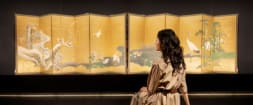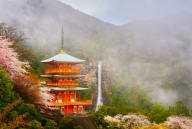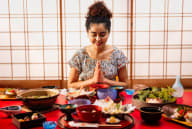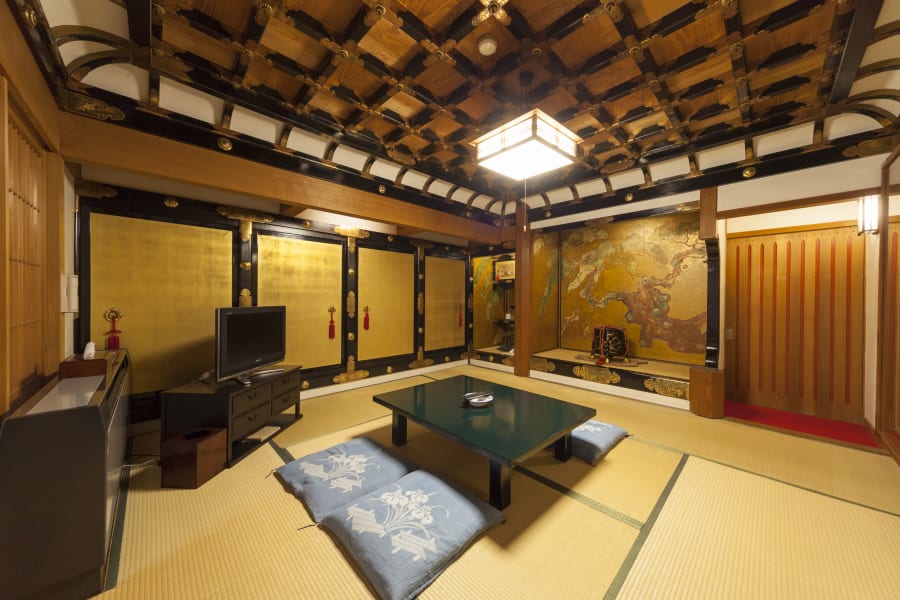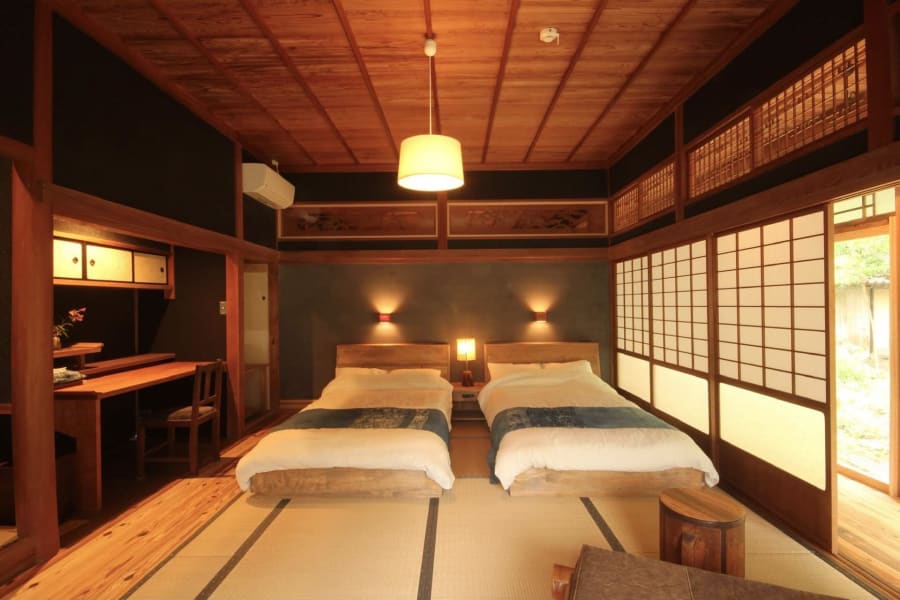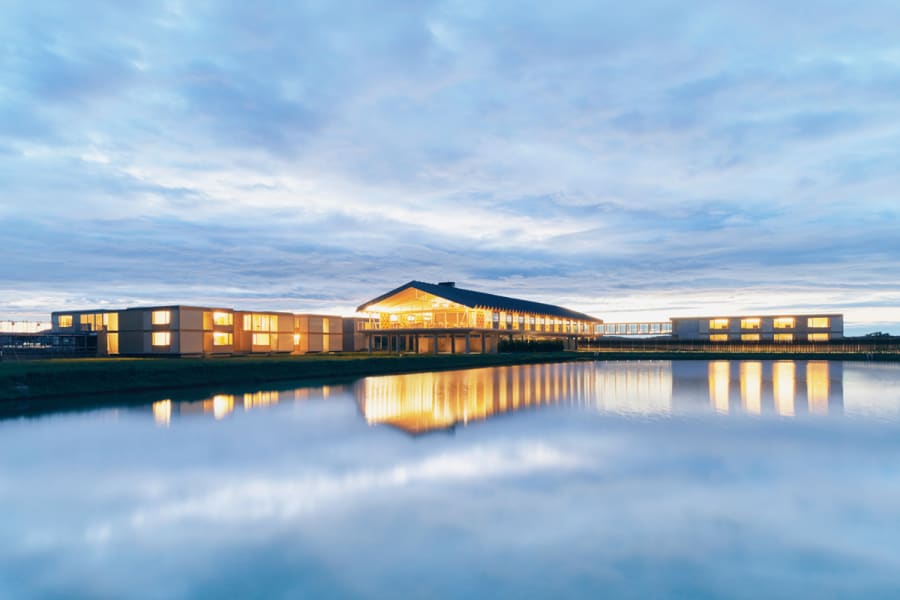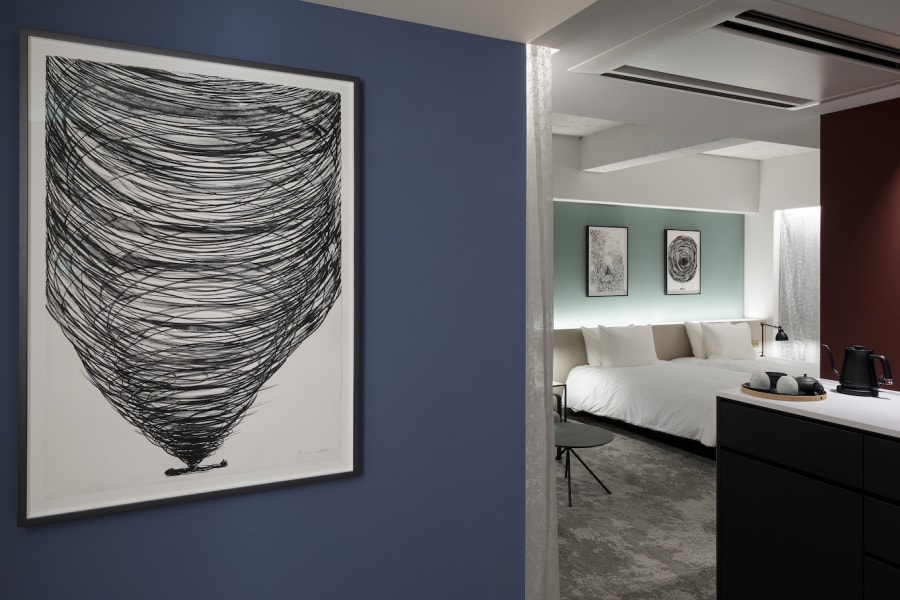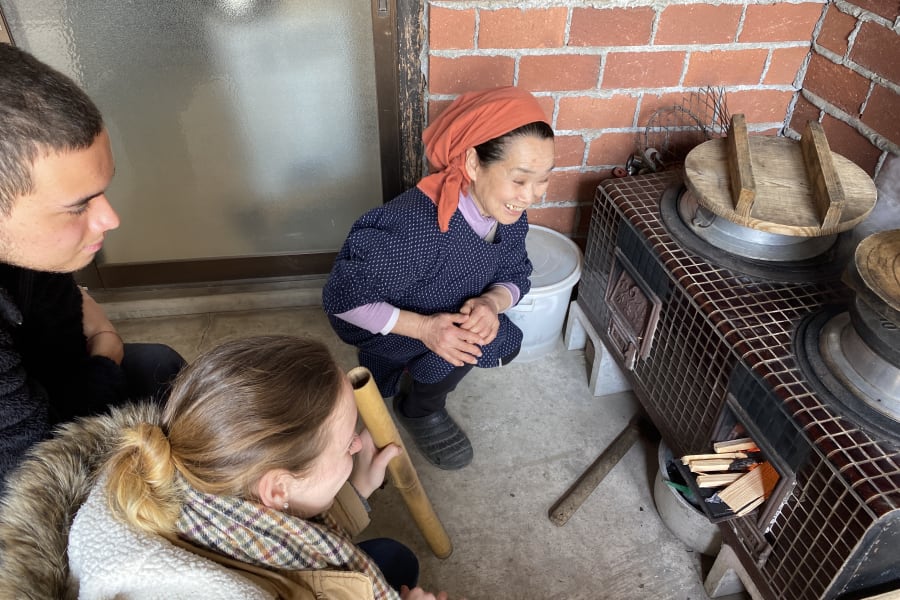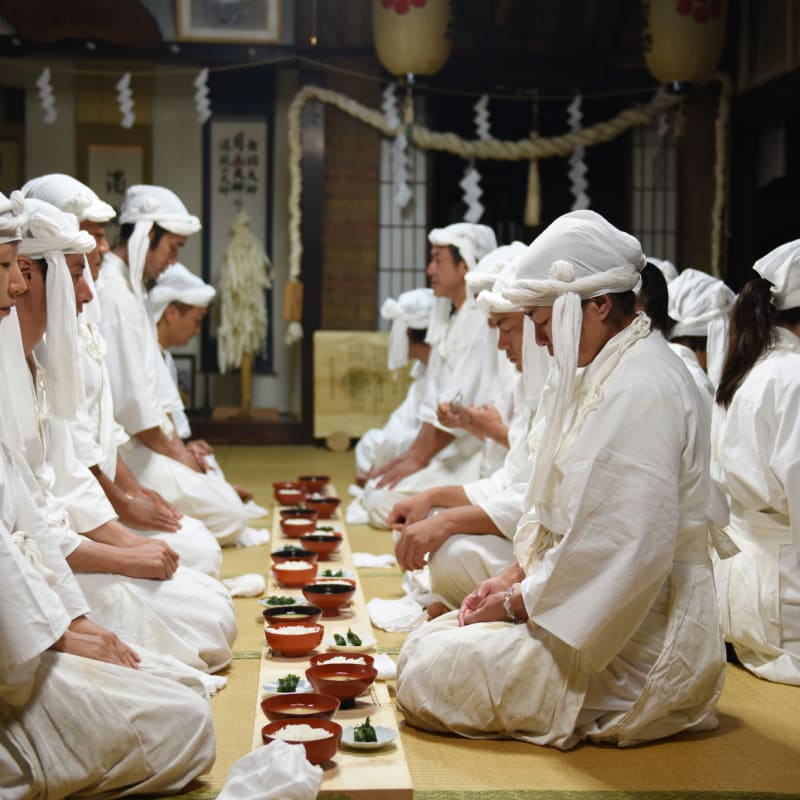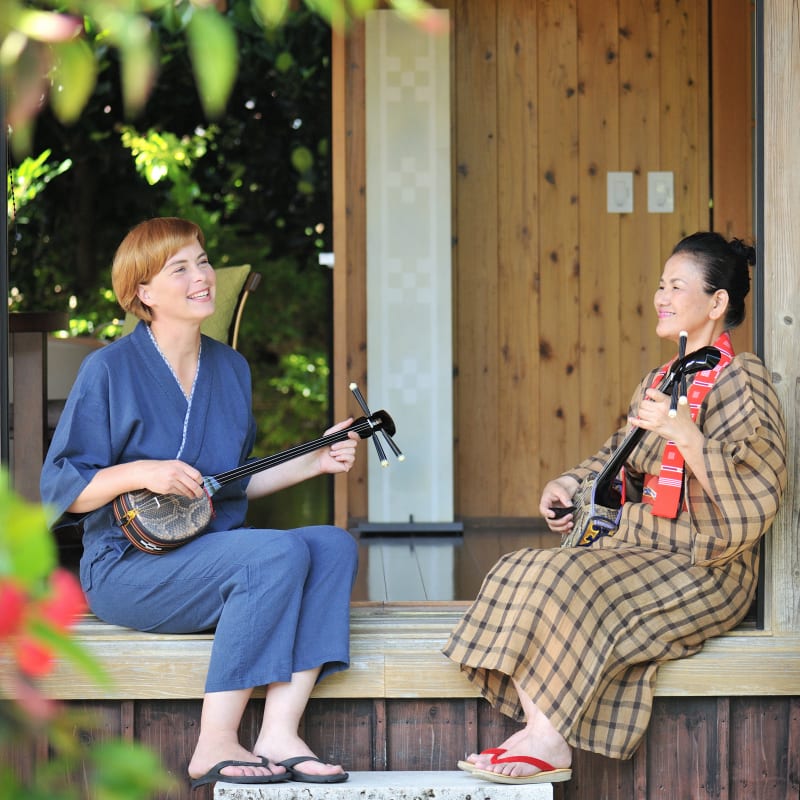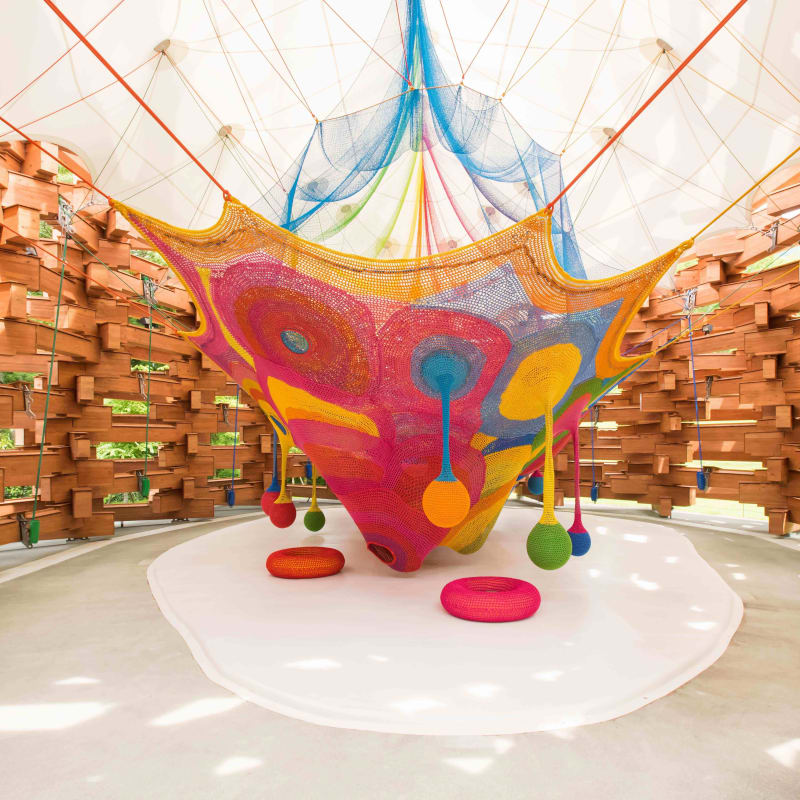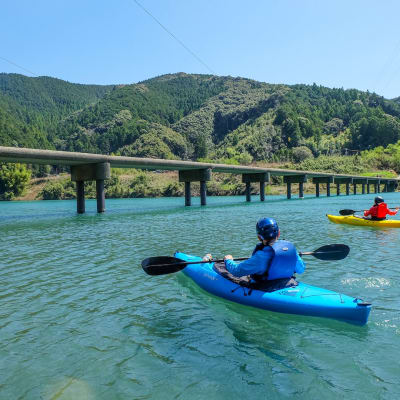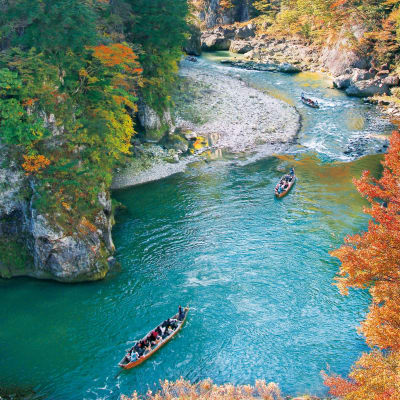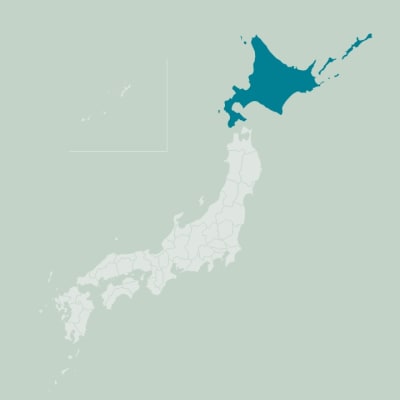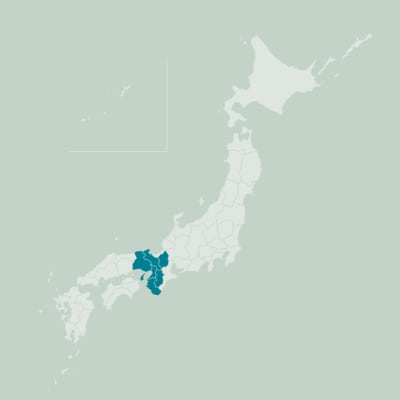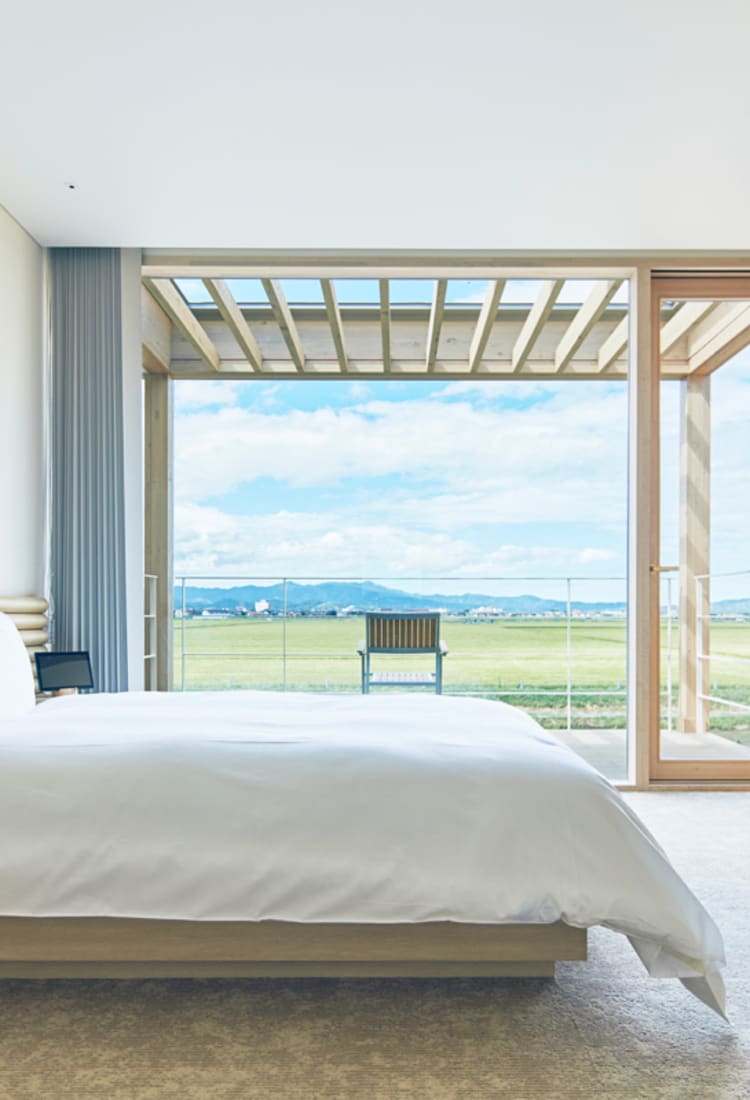
Highlighted Features Sustainable Stays: Enhance Your Japan Experience and Have a Positive Impact with Incredible Accommodations
Responsible tourism becomes more and more important with each year, and you may be wondering how you can increase your positive impact. Luckily, Japan’s hospitality industry is adapting and innovating with this in mind. Think globally and act locally through your trip by booking accommodations supporting cultural heritage, environmental preservation, and sustainable agriculture. You not only will have wonderfully comfortable lodging but will also be able to experience Japan in a new way and support local communities and precious resources.
Stay at a Temple to Meditate and Dine on Vegetarian Meals
No trip to Japan would be complete without a visit to shrines and temples, so do not overlook visiting Koyasan in Wakayama Prefecture. While “Koyasan” literally means “Mt. Koya,” instead of one specific mountain, the name refers to multiple mountains of religious significance along the Kii Mountain Range and is designated a UNESCO World Heritage Site.
Koyasan has been a sacred site of the Shingon sect of Buddhism, which is also known as Japanese Esoteric Buddhism, for over a thousand years. It has survived multiple fire disasters which repeatedly required the practitioners to rebuild their temples. Rather than abandoning hope, generations of dedicated practitioners have helped the unique creed thrive here throughout history in harmony with the surrounding forest by engaging in and activating for sustainable logging practices and reforestation. Thanks to them and sustainable tourism promotion, multitudes of temples continue operations today and offer shukubo, overnight stays for visitors that originally accommodated pilgrims trekking the spiritual route. These stays directly support temples continuing to uphold the Shingon practices as they have for generations.
People of all faiths are warmly welcome to engage in an immersive experience as a Buddhist spiritual practitioner. Although the specifics of each stay vary depending on your choice of temple lodging, they generally will entail morning meditation for you to reconnect with your spiritual side. You will also feast on eco-friendly shojin ryori, or traditional vegetarian Buddhist cuisine making use of seasonal ingredients. Some temples may also include sutra or Buddhist image copying or “ajikan,” a type of meditative experience special to the Shingon sect.
Be sure to explore the surroundings as well. The highlight of Koyasan is its numerous temples, including Okunoin Temple, which is also called the center of religious faith of Koyasan. At Okunoin there is the mausoleum of Kobo Daishi, the founder of the Shingon sect, who is believed by practitioners to be in an eternal state of meditation. You can explore Okunoin by yourself at any time of day, but if you are staying for a shukubo, your trip may be heightened by a guided night tour.
Connect with Nature, Spirits, and Artisans in an Upcycled International Guesthouse
If you are interested in both Japanese religion as well as traditional crafts, you should also visit Hiso, a progressive yet traditional community bathed in spirituality. Hiso is located between the Sea of Japan and the swathes of forests in Shimane Prefecture and part of the historic Yunotsu hot spring town. According to legend, the indigenous gods of the sun and sea temporarily resided in this picturesque village surrounded by sea, mountains, and forests, taking a trip into the mountains while visiting nearby Tonoshima Island. The very name of the town is made up of characters from meaning sun and ancestors, and its residents have a special place in their hearts for this village to which gods of the sun visited. Today, this area features pioneering settlements dedicated to preserving ancient traditions and the natural environment, embracing international exchange, and still promoting its heritage of relaxation.
Here, you can stay at HÏSOM, a renovated guesthouse inspired by local and Nordic values, and which is a powerhouse of multifaceted sustainability in the community. The villa was renovated from an old Japanese house, the process equipping it with modern facilities while using as much of the original building. It additionally incorporated as many up-cycled and natural materials as possible to pay homage to the gods believed to be residing in the woods. Guest rooms blend traditional and Japanese furniture and architecture, and work spaces, a barbeque patio, and an open kitchen make it perfect for longer stays. It is also home to Finnish chefs and artists in a residency program to exchange ideas and cultures and to promote the local way of life.
There is furthermore an abundance to explore in the area. Hike in the forests, fish in the ocean, or simply relax in the open back yard. Just a drive away from the HÏSOM are the preserved streets of Yunotsu Onsen Town, which has been a site of relaxation for hundreds of years. Apart from soaking in the warm natural waters, you can try sake at the local brewer or explore the plethora of local arts HÏSOM promotes. Spiritual Shinto kagura dancers perform in local shrines using masks made using local techniques and materials. Ceramics artisans from three neighborhood kilns create pottery masterpieces from local raw materials and even offer workshops for tourists. You will be sure to enjoy the slow life and local culture, no matter how long you stay.
Indulge in Local and Organic Delicacies at a Luxurious “Rice Terrace” Hotel
If you like the idea of staying a hotel that treasures local artisans and agriculture, look no further than the Shonai Hotel Suiden Terrasse in Yamagata Prefecture. Opened in 2018, the hotel takes its name from the expanse of rice paddies (suiden) right outside its walls. It was designed to appear floating among these namesake rice fields, and its concept is founded in the idea of harmony with the rural environment. Many of the wooden, Western-style guest rooms and the specially curated libraries offer panoramic views of the rice fields, which change in appearance as the year progresses.
The in-house restaurant is likewise in tune with the four seasons and is rooted in farm-to-table values. Shonai is located in a region blessed with delights of the land in all seasons and fruits of the sea, giving rise to delicious pork, beef, seafood, and produce. The hotel operator furthermore engages in organic farming and supports training for eco-friendly agriculture, among other agronomic pursuits to reduce the environmental impact of food consumption. In addition, as the region is known for its exquisite rice and pure water, it has no shortage of sake breweries. The Suiden Terrasse’s restaurant and bar offers sake, shochu, wine, and beer from local producers.
In addition to sponsoring agricultural sustainability and local consumption, Shonai Hotel Suiden Terrasse also promotes regional arts and culture. The gift shop features collections from Yamagata-Shonai craftspeople, utilizing locally sourced materials, ingredients, and crafting methods handed down for generations.
Finally, the Suiden Terrasse features multiple natural hot spring baths. You can choose your preference of indoor or outdoor bathing, which offers magnificent views of the outside scenery.
Enjoy Fusion Art and Cuisine at a Revitalized Hotel
©Shinya Kigure
The spirit of local revitalization and cultural preservation is likewise alive and well closer to Tokyo in Japan’s Kanto region. Maebashi City in Gunma Prefecture has been engaged in a series of rejuvenation-and sustainability-centered projects with “Where Good Things Grow” as its vision. The reopening of the Shiroiya Hotel has been one feature of this citywide renaissance and functions as a focal point of art and food.
With a history of over three centuries, Shiroiya Ryokan inn frequently hosted celebrated artists and other figures of the era but was forced to close in 2008 as it faced a downturn along with decline the city area. A coalition of local and international designers however came together to bring new life to the site as part of a citywide regeneration project, a nd it is dedicated to giving back to the community.
The hotel seamlessly blends the old with the new, celebrating regional, Japanese, and international cultures. The rejuvenated architecture is largely modern, and Shiroiya Hotel pays homage to its artistic roots with artwork from local and international creators featured throughout the hotel, including in the ultra-modern guest rooms. You can even ask staff to give you a guided tour of the premises, which functions like an art gallery. The hotel also removed and rebuilt the historic tea ceremony room from its days as Shiroiya Ryokan so guests today can participate in Japanese traditional tea ceremony. Interact with local residents at the in-house Japanese-French fusion restaurant, bakery, patisserie, and café, which show off the skills of their chefs and use locally sourced ingredients.
Overnight guests who stay between the end of April and early November will have exclusive access to special guided tours of the neighboring UNESCO Ecopark, the Minakami Biosphere Reserve, which offers delightful hiking and canoeing excursions. Whether you come for the art, food, nature, or all three, Shiroiya Hotel will surely meet any interest.
Soak and Sleep in Volcanic Hot Spring Inns with Convenient Access to Ecotours Supporting Local Industries
ⓒSMO Minamioguni Co.,Ltd.
Going away from the urban scene, tourists looking for a more rustic approach to sustainable lodging will love staying in a hot spring inn in the rural mountain town of Minamioguni. Situated in the Aso UNESCO Global Geopark and heavily influenced by one of Japan’s active volcanoes, Mt. Aso, Minamioguni offers an abundance of hot springs, including Ota Onsen and Kurokawa Onsen. In addition to relaxing in the healing mineral waters, at many of these traditional hot spring inns, you can dine on local delicacies and sleep on a fluffy futon spread across tatami mats in the style that Japanese people have adopted since times long gone. Each inn offers a different atmosphere, so pick your favorite from the numerous wonderful stays.
Additionally, when you’re not indulging in your accommodation’s exclusive hot springs, you join private outdoors tours that let you to reconnect with nature and interact with villagers. Satoyama Journey provides a variety of sustainably focused excursions that allow you to personally experience rural Japanese life in ways that directly benefit residents, and many of the tours conveniently start right from the Kurokawa Onsen area. Meander through serene cedar forests or cycle around the spacious grasslands of the geopark. Learn how farmers cultivate their produce using inherited, sustainable methods, and harvest vegetables and fungi to cook your farm-to-table lunch with the help of the local residents. You can even learn how to make fragrant cedar-scented candles from responsibly sourced timber. Tours are devoted to supporting locals protect the rich natural surroundings. A portion of the proceeds from some tours will even go directly toward environmental preservation.
Explore the glorious landscapes and quaint villages by day, and soothe your body and soul in decadent hot springs by night. Experience responsible tourism at its best, minimalist or extravagant.













